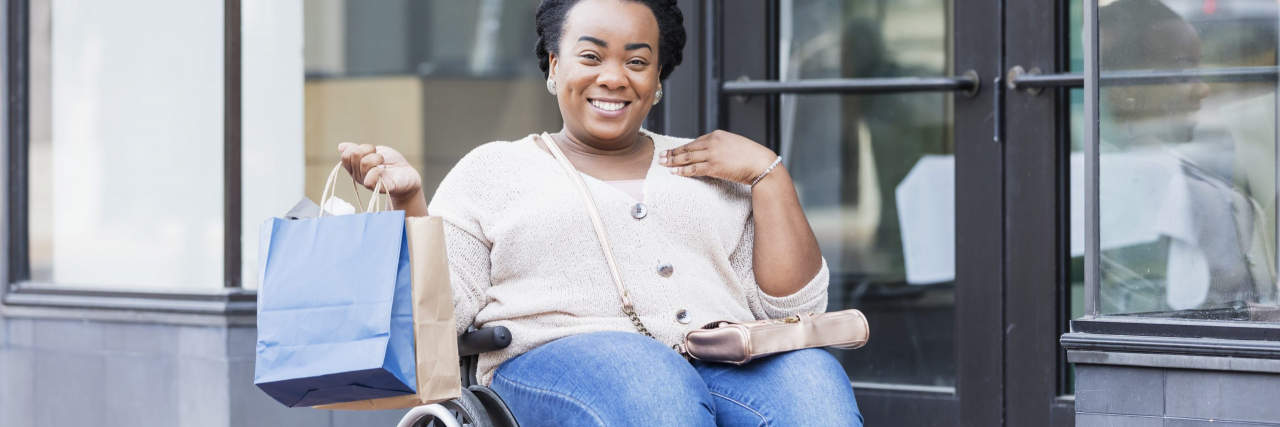It’s July and I’m walking through my local Target’s clothing apparel. Their Pride line is slowly moving from its featured location to being incorporated into each brand’s section. I look eagerly hoping for disability pride merchandise, a shirt, a pin, or a flag, but I find nothing. It’s not just at Target that Disability Pride month has been ignored, it’s most retail companies. I don’t see Disability Pride Month being acknowledged in commercials. I don’t see cool playlists for disabled directors or actors on subscriptions like Netflix or HBOMax. I am disappointed and confused about why disabled people are not being represented and celebrated by major companies this month.
So, why is Disability Pride month still not seen in mainstream media, clothing companies, and retail locations? One of the reasons I believe disability pride doesn’t get the visibility that other pride and awareness months do is that disability is still seen as a tragedy. Why would people want to take pride in tragedy? Yes, there are tragedies that can cause a disability. But, that doesn’t have to mean that disability is a tragedy.
Having disability pride does not erase the fact that being disabled is hard. We all become disabled at some point in our lives if we live long enough, whether it’s progressive, an accident, or we were born with it. If we aren’t disabled ourselves, we know someone who has some form of disability. Disabled people are everywhere, and many have invisible or hidden disabilities. It’s important for all people to be represented in the mainstream, not just during awareness and pride months. But it is just as important for our pride months to be recognized as they can often reach a larger audience, usually with the help of mainstream companies and media. This year just like many before, mainstream companies have chosen to ignore us.
Awareness and pride months are important because it’s a time to counter old beliefs and stigmas. It’s a time for other narratives to be told and for the invisible to be seen. For our children to see themselves. To remind them it’s OK to be proud of who you are. As a child, I never saw my disability anywhere. I wasn’t taught about the disability movement in the 1960s or the ADA. Instead, I was taught to hide my disability for fear of being bullied or told I was seeking attention or being met with sympathy. We are not born with shame, we are taught it.
Those stigmas prevented me from getting the help that I desperately needed when I was a teen. I lived in a small town in the 90s and 00s and didn’t know anyone like me with a disability. The only time I saw someone who was disabled in mainstream media, they were filling certain tropes such as inspiration porn, the bitter disabled person, or a character that was supposed to be pitied. Disability was always seen as a tragedy, but my life was more complex than that.
In my mid-20s, I finally found my voice and others like me. Social media has been a revolution for disabled individuals and advocates. We are finally finding a community, telling our stories, and feeling less isolated and alone. But if you don’t follow someone who is disabled, you might not know about this revolution. We are still a hidden minority, still fighting to be seen.
So this Disability Pride Month, I’m looking toward the big companies. I’m not just asking for a cute disability pride t-shirt and merchandise, I’m asking to be seen. I want everyone to know that this month is Disability Pride Month, especially if it makes people start to question their beliefs on disability.
Getty image by kali9.

